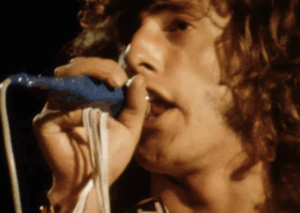10 60s Bands That Time Forgot for a Reason

via Michaels Hit Music / YouTube
The 1960s produced some of the most influential music in history. While bands like The Beatles and The Rolling Stones became legends, others faded away. These lesser-known groups had their moment in the spotlight, but their sound didn’t last. Here are ten ’60s bands that time left behind for good reasons.
1. The Lemon Pipers
The Lemon Pipers had a brief taste of success with their 1967 hit “Green Tambourine,” a psychedelic pop song. Its catchy tune landed them on the charts and brought them some attention. But the band struggled to find a follow-up that resonated with listeners.
Their attempts to blend bubblegum pop with psychedelia didn’t stand out amid the crowded music scene. With many other bands exploring deeper sounds, The Lemon Pipers’ music felt light and unoriginal. They eventually disbanded, leaving little impact beyond their one catchy hit.

2. The Cyrkle
The Cyrkle, managed by Brian Epstein of Beatles fame, is best known for their 1966 hit “Red Rubber Ball.” The song did well, reaching the top 10 on the charts. It gave them a quick burst of popularity, but the band couldn’t maintain their momentum in the ever-changing musical landscape.
Their soft pop-rock style wasn’t enough to compete with the emerging experimental sounds of the late ’60s. Despite opening for The Beatles on their final tour, The Cyrkle couldn’t evolve their sound, and they faded into the background just as quickly as they appeared.

3. The Music Machine
The Music Machine stood out briefly in the mid-’60s with their single “Talk Talk.” The band’s dark, garage rock sound helped them stand out in the crowded scene, but they couldn’t translate their early promise into lasting success. They struggled to keep up with the shifting trends of the time.
Despite their edgy image and innovative style, internal conflicts and poor management led to their downfall. While some garage rock fans appreciate their work today, mainstream audiences moved on. Their brief time in the spotlight wasn’t enough to make a lasting mark.

4. Strawberry Alarm Clock
Strawberry Alarm Clock had a top hit in 1967 with “Incense and Peppermints.” Its trippy, dreamy sound captured the era’s psychedelic vibe perfectly. But after their success, the band couldn’t repeat the formula that made their first single popular. Their attempts to follow up were not as well received.
Their music became overshadowed by more innovative psychedelic acts that emerged in the late ’60s. The band’s lack of musical evolution led to their quick fade from the public eye. They remain a footnote in the era, remembered mostly for their one memorable track.

5. The Electric Prunes
The Electric Prunes made a splash with their 1966 single “I Had Too Much to Dream (Last Night),” a garage rock hit that captured the early psychedelic sound. But the band’s later releases failed to match the impact of their debut, and they struggled to keep up with other evolving acts of the era.
Their sound became increasingly experimental, losing the catchy edge that had made their first hit successful. Despite their initial promise, The Electric Prunes couldn’t maintain their place in the music scene. By the end of the decade, they had disappeared from public view.

6. The Seeds
The Seeds brought a raw, garage rock energy to the 1960s, with “Pushin’ Too Hard” being their most notable track. The song caught attention for its simple yet rebellious vibe. It captured the spirit of the era’s underground rock scene, earning them a dedicated following.
However, as rock music grew more sophisticated, The Seeds’ basic style seemed limited. They couldn’t adapt to the more polished and complex sounds that defined the late ’60s. Their inability to evolve musically led to their decline, leaving them behind as the decade progressed.

7. Spanky and Our Gang
Spanky and Our Gang blended folk and pop sounds, and they scored a few hits like “Sunday Will Never Be the Same” in 1967. Their smooth harmonies and upbeat tunes attracted fans during the peak of folk-pop. But as music tastes shifted, their style seemed increasingly out of touch with the times.
While bands like The Mamas and the Papas adapted to the new sounds, Spanky and Our Gang struggled to evolve. Their cheerful melodies didn’t match the more serious and experimental direction that music took later in the decade. They eventually disbanded, leaving their mark on a narrower slice of the ’60s.

8. The Box Tops
The Box Tops, fronted by a young Alex Chilton, had a major hit with “The Letter” in 1967. The song’s gritty vocal delivery and soulful style captured listeners. Yet, after their initial success, the group struggled to keep the momentum going and failed to produce more hits with the same impact.
Their blend of blue-eyed soul couldn’t compete with the emergence of more dynamic rock and soul acts. Although Alex Chilton went on to find success with Big Star, The Box Tops couldn’t break through the one-hit-wonder label. Their brief time in the spotlight faded quickly.

9. The Turtles
The Turtles had their biggest moment with the 1967 hit “Happy Together.” Their pop-rock sound was light and accessible, and the song became a staple of the decade. But beyond a few more charting songs, the band struggled to keep up with the changing tastes of the late ’60s.
While they experimented with more ambitious styles, it didn’t resonate with audiences the same way their earlier hits did. The band’s straightforward pop approach eventually became overshadowed by more daring and creative acts, leading to their slow decline and eventual break-up.

10. Paul Revere & The Raiders
Paul Revere & The Raiders made a name for themselves with their energetic stage presence and catchy hits like “Kicks.” They became popular on TV shows and had a strong following for a few years. Their blend of rock and pop appealed to younger fans, making them a familiar name during the mid-’60s.
However, as the decade went on, their music felt stuck in time. The band’s polished sound didn’t keep up with the more experimental directions other rock bands took. By the time the ’70s rolled around, they were mostly seen as a relic of an earlier era.














